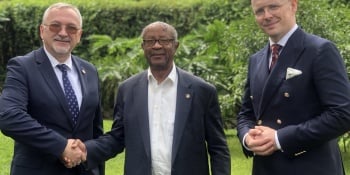Published: 21.02.2018

The SSM discourse is working hard to establish the idea that EU Member States that do not legally recognize the same-sex marriages being contracted in another EU Member State, commit “serious violations of one of the fundamental EU principles – freedom of movement of citizens”. Clearly the intention of this argument is to convince the politicians and the general public that the free movement of persons requires the possibility that “every” family (defined as every kind of partnership), shall be able to move together in the EU.
This effort is already set at the stage of the European Court of Justice with the “Coman case”, in which the Advocate General of the ECJ has already declared in his Opinion that the union of the family justifies that the freedom of movement must include every “kind” of family. Specifically, that the term ‘spouse’, in the frame of the freedom of residence of citizens of the EU and their family, should include the partner whatever the sex would be. Moreover, the Opinion includes a call to push all the Member States to change their internal legislation to follow this interpretation.
The same idea has been recently adopted by the European Parliament on February 7, in the frame of the “Resolution on protection and non-discrimination with regards to minorities in the UE Member States” (2017/2937, point 21). This resolution calls on the Commission to take action in order to ensure that LGBTI individuals and their families can exercise their right to free movements in accordance with both art 21 of the TFEU and art 21 of the EUCFR.
In fact, freedoms of movement and of residence are fundamental rights accorded to every citizen of the EU. Further, Article 21 of the Charter of Fundamental Rights prohibits discrimination based on sexual orientation. Therefore, gay and lesbian people in the EU do enjoy freedom of movement in the same manner and extent as any other EU citizens.
The point is to analyze what freedom of movement really means. As it is formulated and has been defined in Court, it means that EU citizens have the right to move and settle in any other Member State — provided they have a job and a domicile. So, it does not require a EU Member States to receive citizens from other Member States who do not fulfill these requirements and then provide them with social security or other similar benefits.
On the other side, because matters of marriage and family are the exclusive competence of each EU Member State, it is still perfectly legitimate for a Member State not to recognize same-sex marriages, whether conducted in another EU Member State or in a non-EU country. More importantly, the freedom of movement principle does not include an implicit obligation for a receiving Member State to legally recognize same-sex marriages conducted in another Member State — especially if same-sex marriages are not part of the receiving country’s domestic legal order. It also does not oblige a EU Member State to automatically confer “rights, responsibilities and protections” to same-sex couples from other EU countries (or abroad) if it does not already confer these to its own citizens. Indeed, if the principle of freedom of movement were to be interpreted in the way suggested by the ECJ Advocate General in the case above mentioned or by the European Parliament on its resolution of February 7, it would unavoidably result in an absurd discrimination against the own citizens’s of the receiving Member State. For example, a SSM Belgian couple would have more rights in Italy, than an Italian same-sex couple who cannot marry.
Furthermore, if this indeed were the case, it could lead to the strange emergence of ‘marriage tourism’ for European homosexuals: They could travel to another EU Member State (e.g., to Belgium) to get married and then return to their own Member State to claim the “rights, responsibilities and protections” associated with their Belgian marriage. This would render the exclusive competence of EU Member States (except in the situations — and under the procedure — already set out in Article 81.3 of the TFEU) to regulate issues related to marriage and the family completely insignificant.
Therefore, it is the biased position promoted by this trend of linking SSM with freedom of movement that would result in violations of the EU Treaty, and not the refusal of certain EU Member States to recognize same-sex marriages.
In the meantime, in the absence of an ECJ judgment on the matter, it is inappropriate for the Commission to lend its support to a publicity campaign that makes the allegation that some EU Member States are committing “serious violations” of the EU’s freedom of movement principle.
And in the case that the ECJ would force any Member State (in the case currently in court, it would be Romania) to amend its national law to legally recognize same sex relationships, it would mean that the ECJ is deliberately ignoring the democratic rules. The core notions of family law: spouses, family member, and marriage fall within the competences of the Member States, and this is a clear conception well supported by the language of core EU directives on the matter.

29.05.2025
• Proceedings in the case of the German Mori family have concluded at the District Court in Gdańsk.

23.05.2025
• The Ordo Iuris Institute co-organized the 2nd Pan-African Conference on Family Values in Nairobi and was invited to take part in the Kenyan government’s celebration of International Day of Families.

14.05.2025
• In Nairobi, the 2nd Pan-African Conference on Family Values is taking place with the participation of representatives from Ordo Iuris.

09.05.2025
• Representatives of the Ordo Iuris Institute will participate in the Pan-African Conference on Family Values, which will begin on May 12 in Nairobi, the capital of Kenya. Ordo Iuris is a partner of the event.